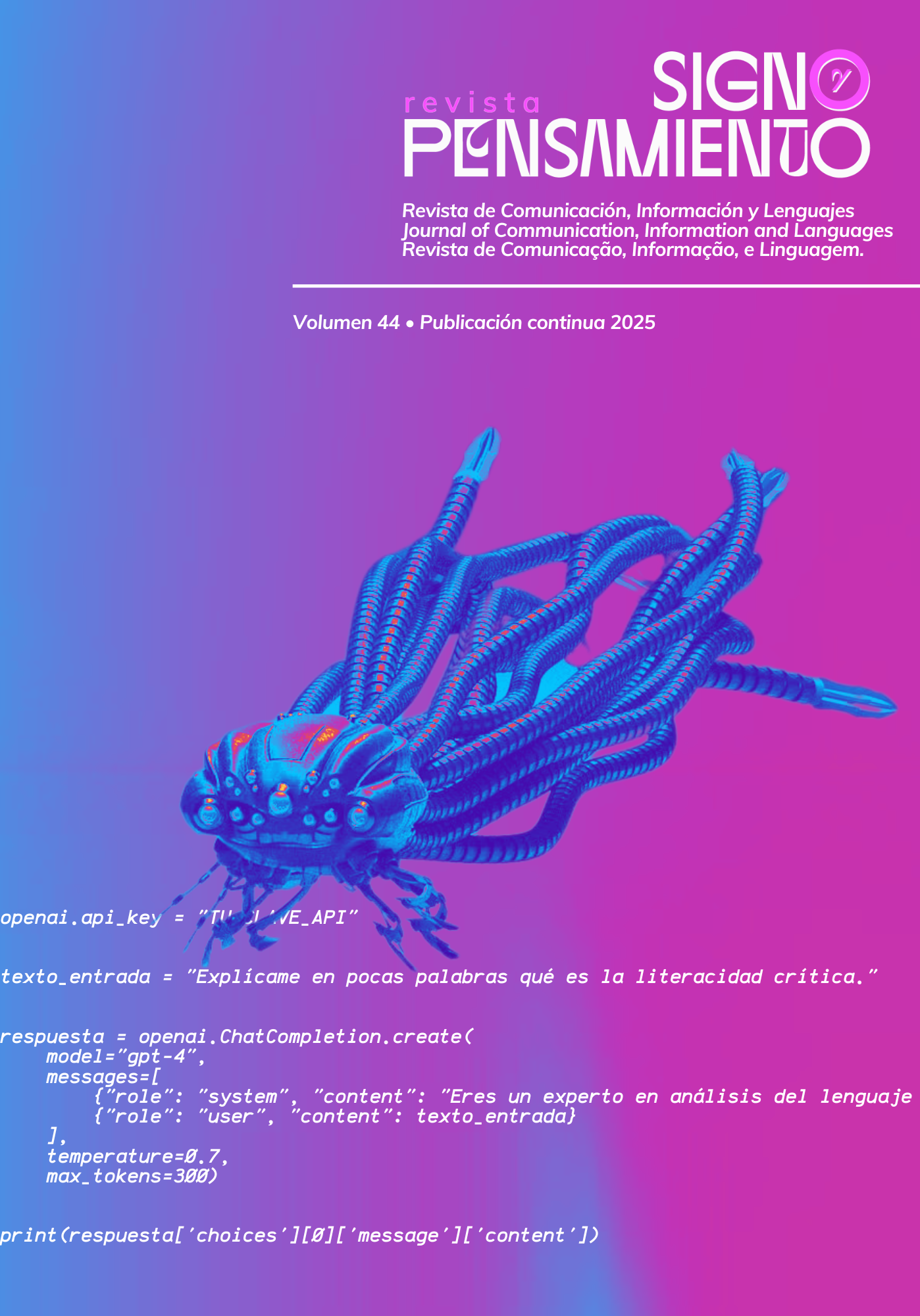Resumo
Digital methods have emerged as a critical approach for investigating social phenomena in environments deeply mediated by digital technologies. Although they are often associated with digital humanities or computational social sciences, they constitute an increasingly relevant area of research. Based on 831 publications retrieved from Scopus, Web of Science, and SciELO, this study identifies the main thematic lines, key authors, institutions, and countries contributing to the field. The results show sustained growth since 2017, a high concentration of publications in Q1 journals, and a notable citation impact. They also highlight the centrality of the Global North, limited participation from the Global South, and the coexistence of critical, computational, and exploratory approaches. Far from presenting a homogeneous identity, digital methods emerge as a constellation of research practices, marked by epistemic, geographic, and linguistic tensions. This study thus offers an empirical overview of their consolidation as an interdisciplinary field.
Amanullah, A. (2023). An Investigation in the Interdisciplinary Nature of Digital Humanities: A Bibliometric Analysis. DESIDOC Journal of Library & Information Technology, 43(4).,
Alvite-Díez, M. L., & Barrionuevo, L. (2020). Confluence between library and information science and digital humanities in Spain. Methodologies, standards and collections. Journal of documentation, 77(1), 41-68.
Benito-Santos, A., & Sánchez, R. T. (2020). A data-driven introduction to authors, readings, and techniques in visualization for the digital humanities. IEEE computer graphics and applications, 40(3), 45-57.
Carrozza, C., & Pereira, T. S. (2015). Mapping digital methods: where science and technology studies and communication studies meet? Communicating and Evaluating Science, 203-236.
Chansanam, W., Ahmad, A. R., & Li, C. (2022). Contemporary and future research of digital humanities: a scientometric analysis. Bulletin of Electrical Engineering and Informatics, 11(2), 1143-1156.
Garfield, E. (1955). Citation indexes for science: A new dimension in documentation through association of ideas. Science, 122(3159), 108–111. https://doi.org/10.1126/science.122.3159.108
Glänzel, W. (2012). Bibliometric methods for detecting and analysing emerging research topics. El Profesional de La Informacion, 21(2), 194–201. https://doi.org/10.3145/epi.2012.mar.11
Gupta, N., & Chakravarty, R. (2021). Science mapping analysis of digital humanities research: A scientometric study. Science.
Hampton, K. N. (2017). Studying the digital: Directions and challenges for digital methods. Annual Review of Sociology, 43(1), 167-188.
Jiang, L., Li, J., Wider, W., Tanucan, J. C. M., Lobo, J., Fauzi, M. A., ... & Zou, R. (2025). A bibliometric insight into immersive technologies for cultural heritage preservation. Heritage Science, 13(1), 126.
Leydesdorff, L. & Welbers, K. (2011). The semantic mapping of words and co-words in contexts. Journal of Informetrics 5(3), 469–475. https://doi.org/10.1016/j.joi.2011.01.008
Li, K., Ma, R., & Fang, Z. (2024). Explicit or implicit digital humanities? An examination of search strategies to retrieve digital humanities publications from large-scale scholarly databases. Quantitative Science Studies, 5(3), 718-735.
Li, S., & Yan, C. (2023). Characterizing Emerging Technologies of Global Digital Humanities Using Scientific Method Entities. In EEKE/AII@ JCDL (pp. 33-40).
Münster, S. (2019). Digital heritage as a scholarly field—Topics, researchers, and perspectives from a bibliometric point of view. Journal on Computing and Cultural Heritage (JOCCH), 12(3), 1-27.
Newman, M. E. J. (2004). Coauthorship networks and patterns of scientif-ic collaboration. Proceedings of the National Academy of Sciences of the United States of America, 101(suppl. 1), 5200-5205.
Osiński, Z. (2023). Development of Digital Culture Research—Bibliometric Analysis Using CiteSpace. Kultura i Społeczeństwo, 67(1), 205-230.
Pritchard, A. (1969). Statistical bibliography or bibliometrics? Journal of Documentation, 25(4), 348–349. https://doi.org/10.1108/eb026482
Rogers, R. (2023). Métodos digitales (Signa_Lab). ITESO.
Romero-Pérez, I. & Pulido-Rojano, A. (2018). Applications of the co-word analysis method (co-word analysis) (Spanish). Corporación Universitaria Reformada.
Schoon, A., Mabweazara, H. M., Bosch, T., & Dugmore, H. (2020). Decolonising digital media research methods: Positioning African digital experiences as epistemic sites of knowledge production. African Journalism Studies, 41(4), 1-15.
Small, H. (1980). Co‐citation context analysis and the structure of paradigms. Journal of documentation, 36(3), 183-196. https://doi.org/10.1108/eb026695
Small, H. (1973). Co‐citation in the scientific literature: A new measure of the relationship between two documents. Journal of the American Society for information Science, 24(4), 265-269. https://doi.org/10.1002/asi.4630240406
Spinaci, G., Colavizza, G., & Peroni, S. (2022). A map of Digital Humanities research across bibliographic data sources. Digital Scholarship in the Humanities, 37(4), 1254-1268.
Van Eck, N., & Waltman, L. (2010). Software survey: VOSviewer, a computer program for bibliometric mapping. Scientometrics, 84(2), 523-538.
Wahid, S. H. (2024). Exploring the intersection of Islam and digital technology: A bibliometric analysis. Social Sciences & Humanities Open, 10, 101085.
Yuting, P., Yinfeng, J., & Jingli, Z. (2023). Current status of digital humanities research in Taiwan. Heliyon, 9(5).

Este trabalho está licenciado sob uma licença Creative Commons Attribution 4.0 International License.
Copyright (c) 2025 Natalia Márquez-Bustos, Orlando Gregorio-Chaviano, Jaime E. Cuellar



